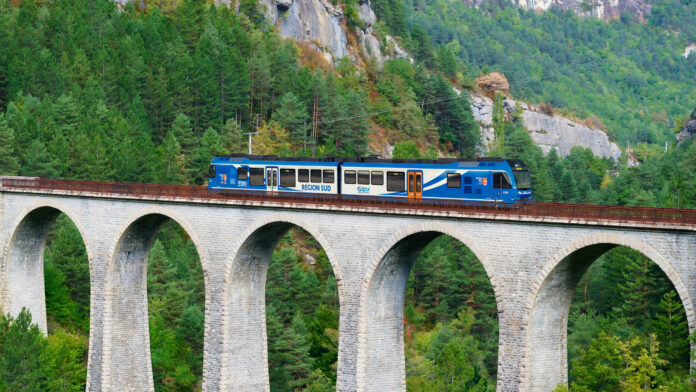
On April 17, regional officials and SNCF leaders met in Marseille to review railway projects related to the 2030 Winter Olympic and Paralympic Games. A network modernization is underway, particularly on the Marseille-Briançon line and the Chemins de Fer de Provence.
Gathered at the Hôtel de Région in Marseille, Jean-Pierre Farandou, CEO of SNCF, Renaud Muselier, president of the Sud Region, and several railway sector leaders attended the second meeting of the JOP 2030 Task Force. This dedicated team aims to coordinate projects in preparation for the Winter Games.
The modernization of the Marseille-Briançon line was a central focus of discussions. The announced goal: to reduce travel time to 3 hours and 40 minutes and to improve local services. To achieve this, a program for infrastructure regeneration is planned. Funding is provided by the 2023-2027 State-Region Plan Contract and an additional envelope dedicated to the Games, which is still under discussion with the State. The work is expected to be completed by 2029.
Two lines, one common goal: improving the railway service
“The Games are a tremendous lever for sustainably transforming our railway network and opening up the alpine departments,” stated Renaud Muselier. Jean-Pierre Farandou, meanwhile, praised “a unique opportunity to meet current expectations while leaving a tangible legacy.”
Concurrently, the Region continues the modernization of the Chemins de Fer de Provence. On April 15, the Board of Directors of the Regional Transport Authority approved a total investment of 130 million euros. This plan includes the construction of a maintenance workshop, the installation of a new information system, the renovation of stations, and the purchase of eight rechargeable hybrid trainsets for the Nice – Digne-les-Bains line.
These new trainsets will be 100% electric between Nice and Plan-du-Var, except for interurban missions. A virtual tour of the future trains will be offered starting in June.
“This result commits us to go further and continually improve the service offered to travelers,” specified Renaud Muselier, referring to the 600,000 passengers welcomed last year on this line.